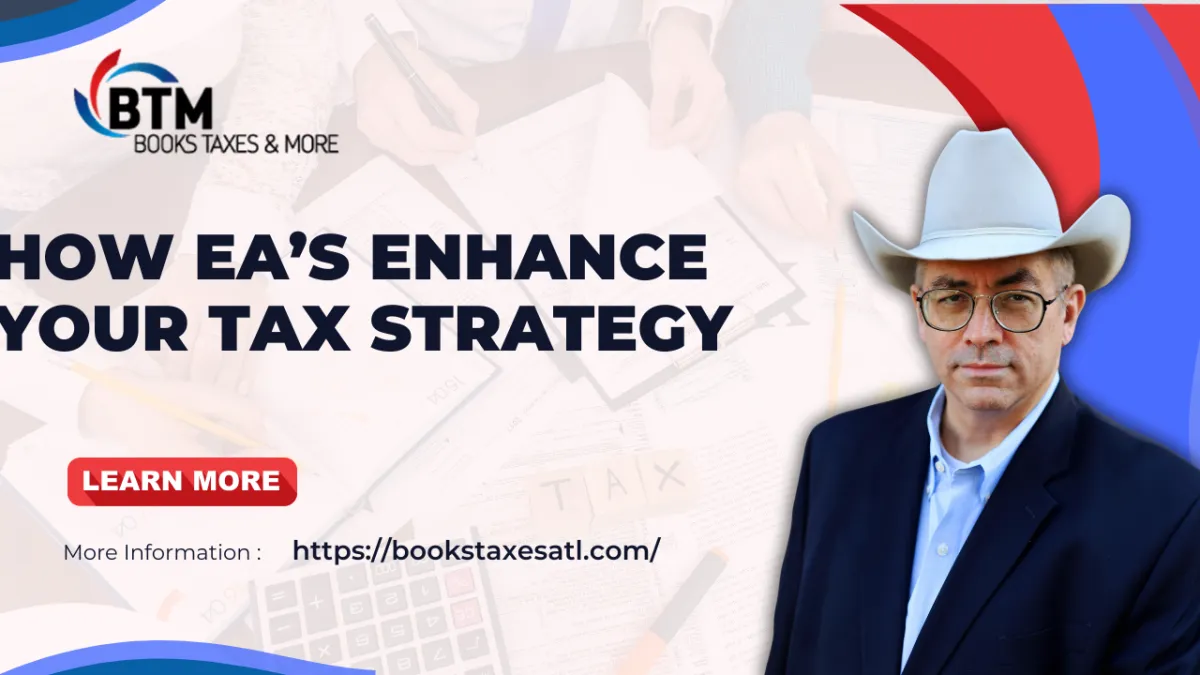
How Enrolled Agents Enhance Your Tax Documentation Strategy
When it comes to the IRS, documentation isn't just helpful, it's essential. Whether filing a simple tax return or facing a complex audit, having accurate and well-organized records can make all the difference between a smooth process and a stressful ordeal. This is where the power of proper documentation—and the guidance of Steve Perry, Enrolled Agent, from Books, Taxes and More can become the taxpayer’s greatest asset.
Why Documentation Matters
The IRS operates on evidence. When a taxpayer is selected for an audit, the burden is on the taxpayer to prove the information submitted on the tax return. That means having receipts, invoices, mileage logs, bank statements, and other relevant records readily available. Even if the numbers are accurate, without supporting documentation, deductions can be denied, income may be re-evaluated, and penalties can be imposed.
Proper documentation:
Validates tax return claims – From business expenses to charitable donations, documentation provides the proof the IRS requires.
Reduces risk of penalties – Missing or incomplete records can lead to disallowed deductions and fines.
Speeds up the audit process – Well-organized records help the IRS resolve audits more quickly and with fewer complications. Making it easier for the auditor to agree with the taxpayer increases the likelihood the auditor will look favorably on all areas of the return or returns.
Builds a strong defense – If a dispute arises, proper documentation is the BEST line of defense.
What Should be Kept
Not every piece of paper matters, but the right ones do. Some key documents to maintain include:
Receipts and invoices related to business or deductible expenses
Mileage logs for vehicle-related deductions
Bank and credit card statements that support financial activity
W-2s, 1099s, and income reports
Charitable donation acknowledgments
Contracts, lease agreements, and legal documents related to business or rental income
Closing documents for real estate transactions.
The IRS generally recommends keeping records for at least three years, but for certain situations, like underreported income or fraud, they may look back up to six years or more. If the return covers real estate or other property with long depreciation cycles, records should be kept for three years after the item is sold or otherwise disposed of to support potential audits in later years.
How Steve Perry, Enrolled Agent Can Help
An Enrolled Agent (EA) is a federally licensed tax professional who can represent taxpayers before the IRS. More than just filing your returns, an EA is trained in tax law, audits, and collections—and documentation is one of our specialties. At Books, Taxes & More we educate our clients on what records to keep, how long to keep them including the best ways to preserve documents.
Here’s how Steve Perry, EA can assist:
Evaluate and organize your financial records to ensure nothing important is missing
Establish a proper record-keeping system for future tax years
Represent you during audits and communicate directly with the IRS on your behalf
Help you understand documentation requirements specific to your business or tax situation
Mitigate potential risks by spotting inconsistencies before they become problems
Help rebuild records when needed.
Final Thoughts
Dealing with the IRS can feel overwhelming, but with the right documentation and a qualified professional from Books, Taxes & More, providing guidance, the taxpayer is not just reacting to a problem but proactively protecting one’s self.
Think of documentation as an insurance policy during tax season. The more complete and accurate the records, the more confident one can be in whatever tax challenge comes knocking. And with the expert support of Steve Perry, EA, one can ensure financial records stand up to scrutiny, and one will never have to face the IRS alone.
